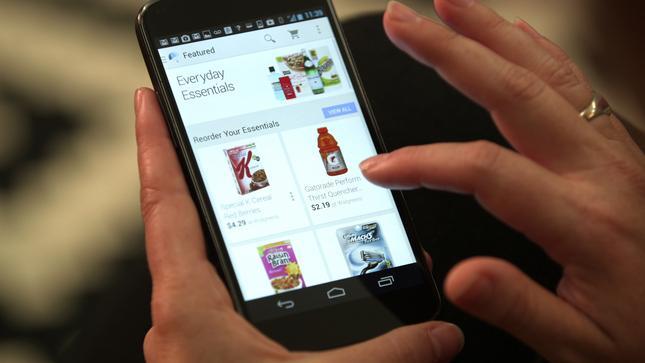By Josh Eidelson | Bloomberg
Instacart Inc. plans to terminate about 1,900 employees’ jobs, including the only unionized positions in the U.S., representing a fulsome embrace of the gig economy.
The grocery delivery company already classifies most of its workers as independent contractors, whose ranks have ballooned to more than 500,000 during the coronavirus pandemic. But starting in 2015, the company hired a small subset of workers as employees, who under U.S. law are entitled to protections like minimum wage and can be subject to more direction and training by their boss. “What we found is that our shoppers require training and supervision, which is how you improve the quality of the picking,” Instacart Chief Executive Officer Apoorva Mehta said at the time. “You can’t do that when they are independent contractors.”
Now, Instacart is moving in the other direction, eliminating 1,877 employees’ positions, including those of 10 workers in Illinois who last year became the first in the country to vote to unionize at the company. The company said it’s doing this as part of a shift toward new models, like providing its technology to retailers to have their own workers prepare customers’ orders.
“We know this is an incredibly challenging time for many as we move through the Covid-19 crisis, and we’re doing everything we can to support in-store shoppers through this transition,” the company said in an emailed statement. Instacart said it’s providing severance packages and seeking to place affected workers in open positions within the company or working directly for retailers. Instacart said it will still have thousands of shoppers classified as employees after making the change but declined to provide more specifics.
The United Food & Commercial Workers union, which represents the Illinois workers, condemned the move, saying it eliminates around a fifth or more of Instacart’s U.S. front-line employee positions. “Instacart firing the only unionized workers at the company and destroying the jobs of nearly 2,000 dedicated front-line workers in the middle of this public health crisis is simply wrong,” Marc Perrone, the union’s president, wrote in an emailed statement.
Instacart and other gig companies including Uber Technologies Inc. and Lyft Inc. last year bankrolled a successful $200 million campaign to pass a California ballot measure exempting them from a state law declaring workers were employees if they did work in the “usual course” of their boss’ business. Emboldened by that victory, the companies are pushing for similar changes elsewhere that would make it easier to claim workers are contractors.
For more articles like this, please visit us at bloomberg.com
©2021 Bloomberg L.P.











